
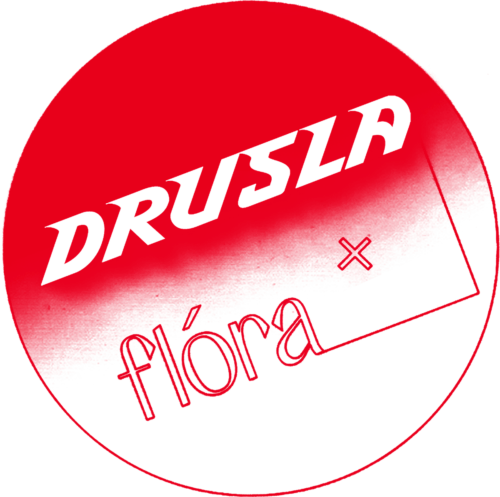
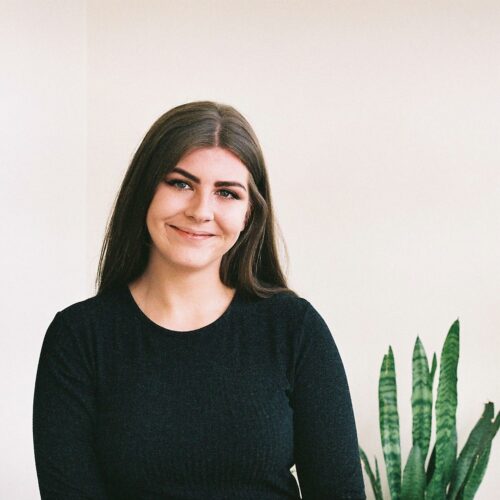
Steinunn Ólína Hafliðadóttir
images:
Eva Sigurðardóttir
@evasigurdar
@evasig__
evasigurdar.com
translation:
An interview with the disability activist Steinunn Ása Þorvaldsdóttir
Many Icelanders should be familiar with Steinunn Ása Þorvaldsdóttir. She appeared on national television on the show With our eyes (Með okkar augum) where she is also a program producer. The show recently launched its tenth season. Steinunn Ása is also a well known disability activist, and in the year 2017 she was awarded for her cultural participation and achievements. Today Steinunn Ása works for the Icelandic Human Rights Center in Reykjavík, where she has worked in various projects that revolve around the rights of disabled people. Recently Steinunn Ása has been working on a brochure regarding the status of disabled women who are survivors of sexual violence. The brochure also discusses the right use of terms when speaking about or to disabled people. The brochure is expected to be released later this year and Steinunn Ása hopes that it will help to normalise discussions and information about disabled people. She wants to make those discussions accessible and normal.
You have recently been working on a brochure for the Icelandic Human Rights Center in Reykjavík, what is it about?
“Yes, I have been working on a brochure that I find to be very interesting and important. The brochure, for example, discusses sexual violence against disabled women. I felt like I had to write my story; about all the violence I’ve experienced, and I often find that to be very hard. It is hard to repeat your own story often. Yet, I’ve always been aware that I should not feel ashamed about my story. The abusers should feel ashamed and it is important to be aware of that, otherwise everything can turn sour. That’s why I think it’s so important to write a brochure about it. Disabled women need to know that they are not alone and that people want to support them. […] This is why the Slut Walk is amazing; it helps people to cope with these ugly matters. It’s nice to know you’re not alone. I reckon that next year’s Slut Walk is going to be louder and more powerful. I feel it! Everything is of course different now because of Covid. But in general we have to make our voices heard. We have to fight, even though it’s not easy. Next year I want to see a disabled woman up at the podium, I want to see a disabled woman take part in the planning of the Slut Walk”.
Does the brochure mainly discuss sexual violence against disabled women or does it also tackle other subjects?
“It discusses many matters that relate to the reality of disabled women, but it also discusses how one can deal with being a survivor of sexual violence. The brochure also addresses relatives and abusers; I think it’s important to address abusers. The brochure is in its own way an account of my own life experiences. I have experienced many ugly incidents; just last year a man approached me, said hello and said: Hello you idiot, and I just thought WHAT! This is extremely vulgar. It took me a long time to process this interaction. But this is only a singular story of many. But I must say that I’m incredibly lucky to be surrounded by good friends that are able to support me when everything seems to be going downhill“.
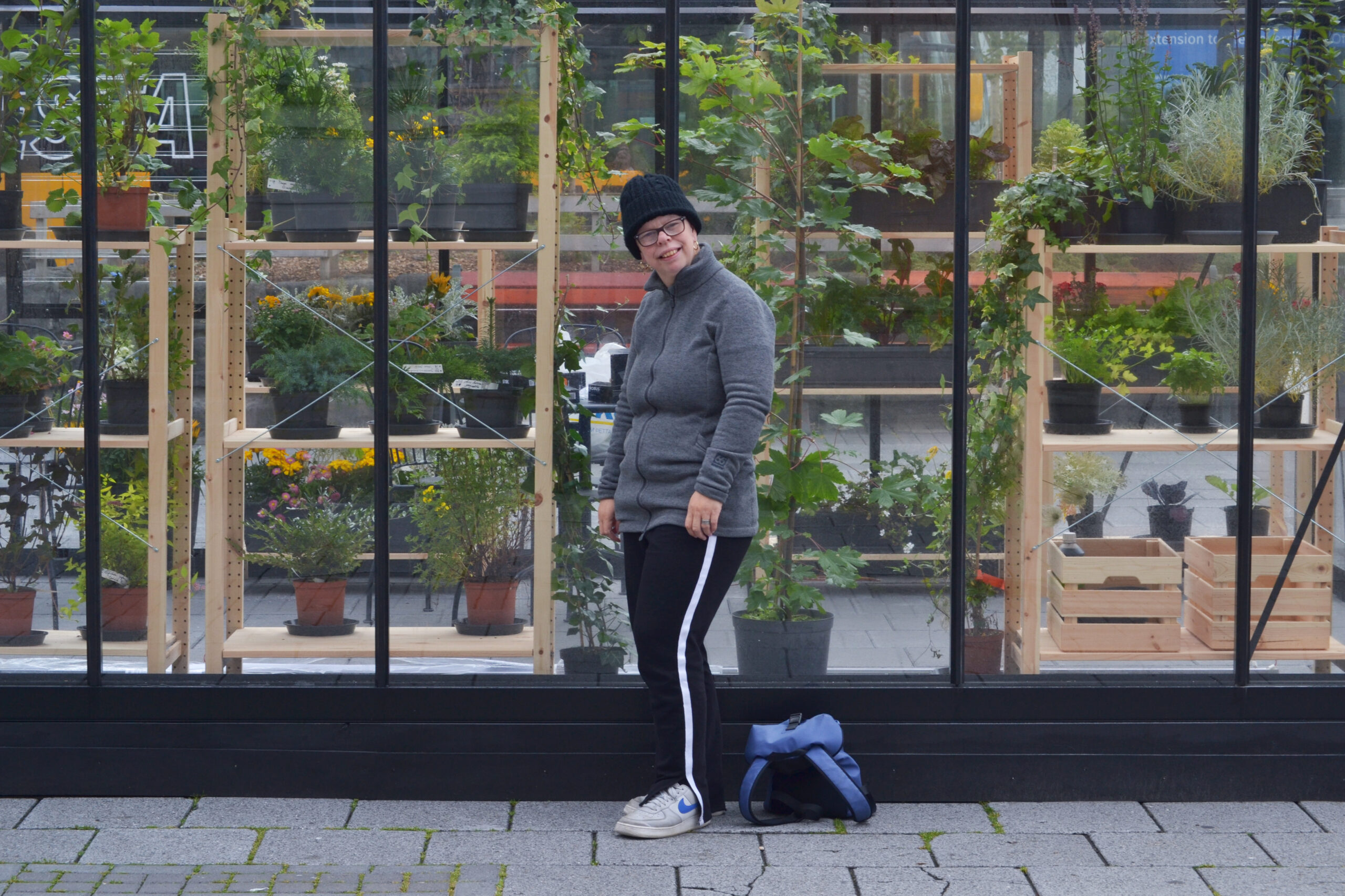
Do you think that sexual violence against disabled women is discussed differently than sexual violence against abled women?
“Yes, [disabled women] are more likely to be exposed to violence, and that is most definitely a terrible fact that I find very hard to accept. It is a very ugly fact. We need to listen to disabled women and believe their stories about violence. Disabled women are a minority, like gay people, for example. But I think we should never categorize people by any means. This is why I find it so necessary to advocate for sex education in schools. Sex education should start early and follow us throughout our school attendance. I am really sad and mad about the fact that there’s a lack of sex education in schools; but hopefully that will change soon. “
Why is it important to discuss disability issues?
„So that we are not forgotten. Disabled people tend to be forgotten in everyday discussions and that especially applies to disabled women; that shouldn’t happen. Disabled people are human, just like you and I. We are incredibly good people and that’s why it’s important to think about us. It doesn’t make sense to advocate for equality unless everyone is included.“
How can one advocate for the visibility of disabled people?
“Disabled people should participate in everything; as many things as they can. I understand that these sorts of participation aren’t for everyone, but you know, it is what it is. Then it’s also just politics; disabled people need to take part in politics. It is so important that our voices are heard and that our voices echo through everything that is discussed at Alþingi. That’s why it’s important that people in charge consult with us. We need to be able to participate; be able to say what we want. This only works if people are willing to listen to us. Disabled people need to be more visible in society; they need to share their stories, but unfortunately we often find that there’s no interest in listening. That needs to change.
Do you feel like people listen to you?
“Not all the time, but I don’t feel as invisible as I did before. I get more questions from people and I am more frequently asked to participate in a project than before. I think that this development is very positive. It’s important that people are educated on disability. I, for instance, am always ready to help educate people. I’m able to help people utilize correct use of words in regards to disabled people. We should never be too shy to educate ourselves.”
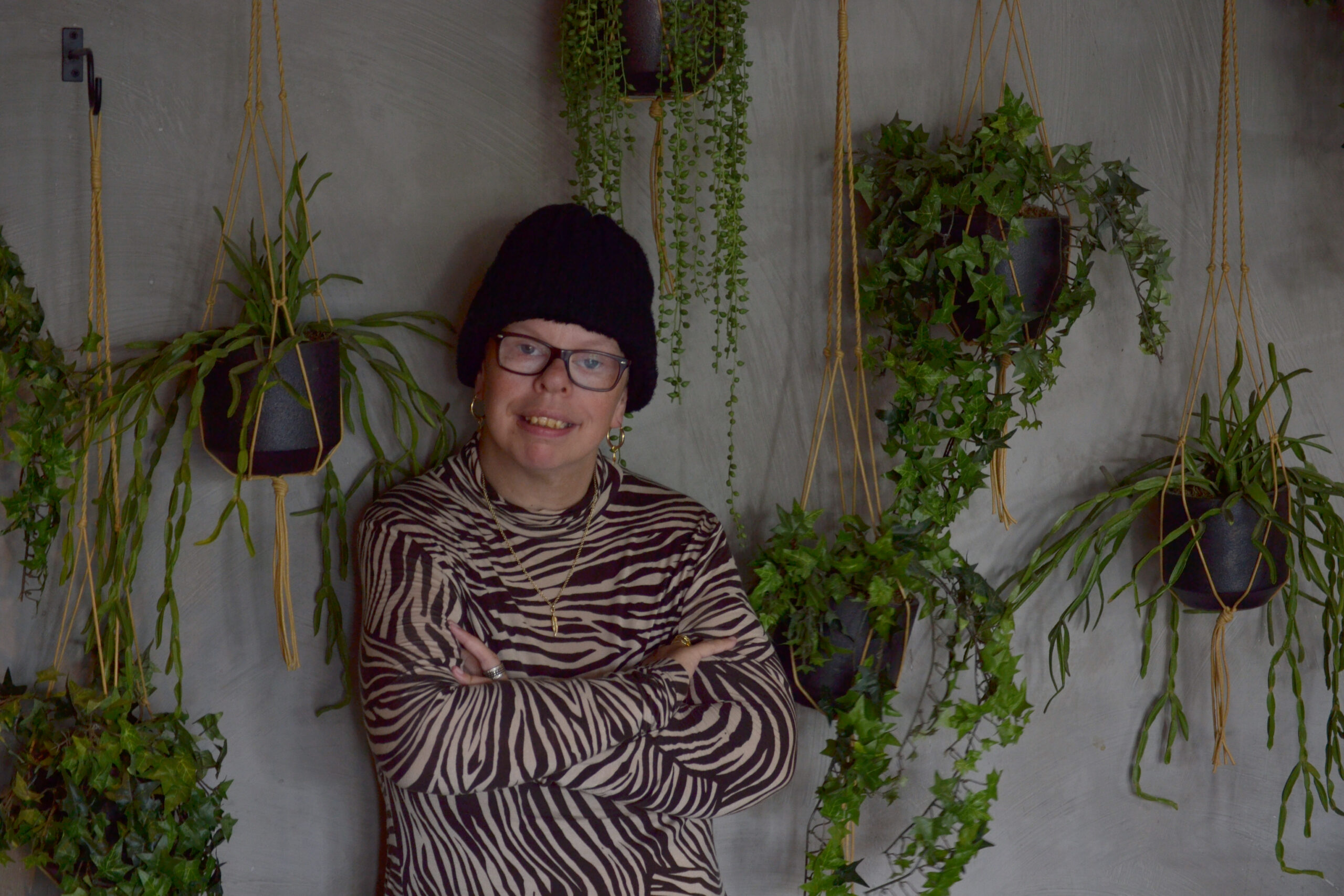
How should education on disabled people be utilized in schools? What is necessary to talk about?
„We need to talk about different impairing of disabled people, be they physical or mental. Disabled people come in different shapes. We should also discuss the sex life of disabled people in sex education, just so that people aren’t afraid of the idea of disabled people being sexual. I’m willing to teach people in elementary schools about that. I also think that the administration of the Slut Walk would benefit from my teaching about this. It could open their eyes about certain matters of disabled people. I mean, we should put a focus on disabled people in every Slut Walk from now on. But I must say that I’m incredibly proud of our Slut Walk team, I always have been. I just care for it so much and I never want it to quit. We should have a Slut walk all year round; then maybe the government will fully join us in our fight for the rights of disabled people.”
You have yourself taught disability studies in the University of Iceland?
“Yes, and it’s the best thing I do. I, for instance, teach people how they can associate with disabled people. People should treat us like they would any other person. It’s so important to interact with people the way you would want to be interacted with. I like teaching because I think it matters. Do you ever remember being young and meeting a disabled person and thought to yourself: Hey, this person is different? I’ve talked to people that have admitted to me that they’ve felt shy about meeting a disabled person. It’s rather common that parents scold their child for staring at a disabled person, when in fact, that child could just be curious. Instead of answering the child’s question they ‘shuss’ them as if being disabled is shameful. Parents should be able to talk to their children about disability. Disability is not shameful. Once a young woman told me that she’d been afraid of disabled people, and I think that only happens because we are lacking in education on disability. We are all alike yet so different somehow. I’ve also been teaching people about the correct use of terms. Some people tend to find it incredibly easy to disregard disabled people and call them an Idiot, and that is disgusting, because it isn’t true. This blatant use of outdated words shouldn’t exist, please go away! I think it’s time that everyone learns how to interact with disabled people. It doesn’t have to be complicated. Abled people should be able to help us when we send out a call for help; when we are in need of support. We should be fighting together, not separately.”
It’s evident that it’s important that people are educated on those matters?
“Yes, it’s number one, two and three that people get educated about disability; people need to learn that we’re also human. It’s just so weird that many people aren’t able to realise this. So many disability activist have mentioned the importance of this, for example Inga [Björk Haraldsdóttir], Freyja [Haraldsdóttir] and Embla [Guðrúnar Ágústsdóttir]. They’ve all talked about the importance of treating disabled people with respect instead of meeting them with incomprehension. But hey also, I wanted to tell you; what’s the deal with disabled people being disregarded as sexual beings? That suchs nonsense! Sorry! Can someone explain this nonsense to me? People must stop talking down to disabled people and instead realise that disabled people are able to enjoy sex just like many other people. I hate discourses like this. Why is it so hard to picture disabled people as sexual beings? Maybe it’s because people think of us as children? We need to change this. I most definitely dislike prescriptivism and pity towards disabled people… Yuck, this is a type of violence, and I’m familiar with all of it. No one should have to put up with this sort of violence.”
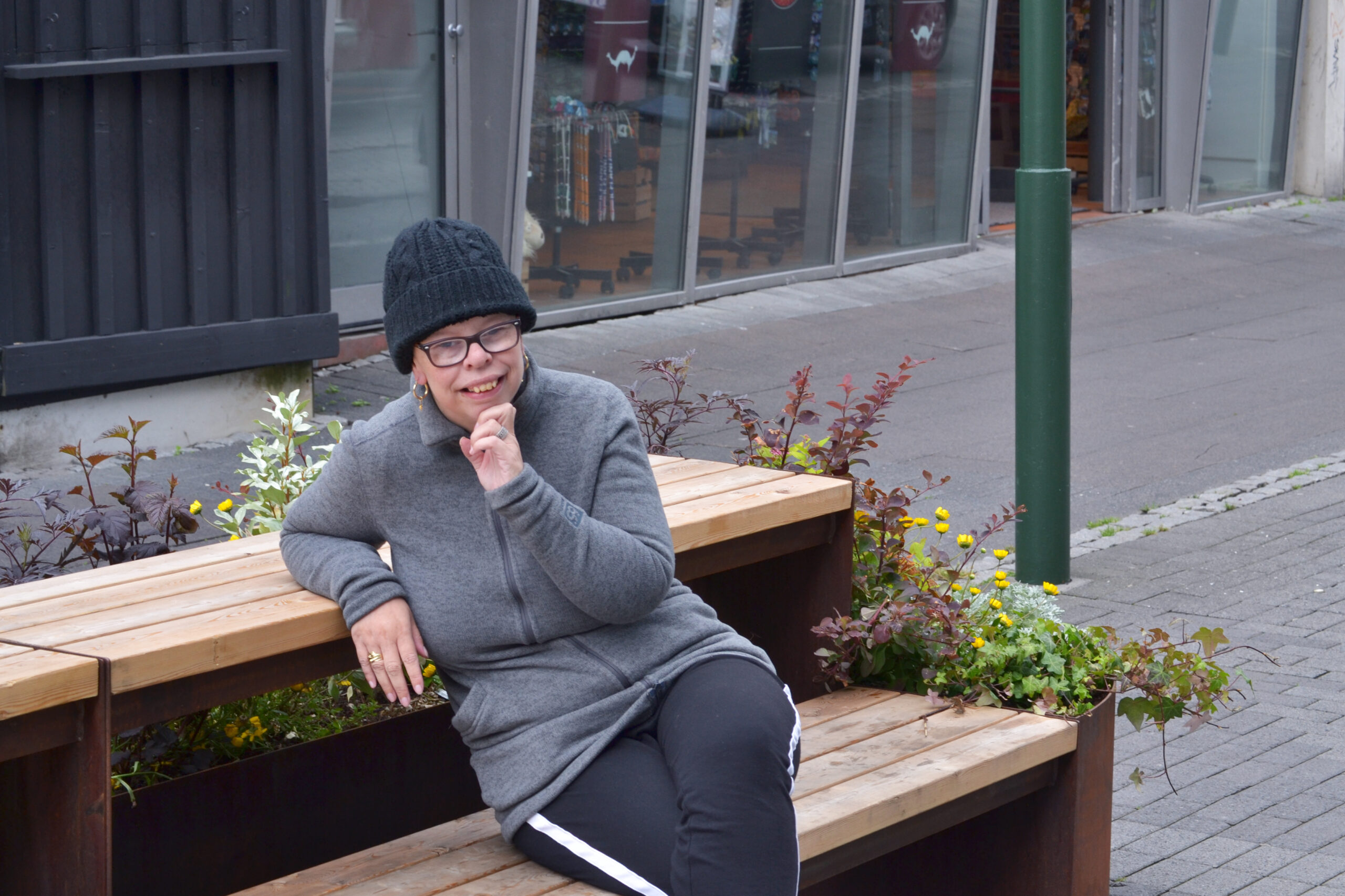
Do you feel there’s a lack of resources for disabled women that have experienced sexual violence?
“Yes, and there’s also a lack of consultants that specialise in helping disabled survivors of violence. For instance there’s no specialist like that at Stígamót. I’m very mad about that. These sorts of things should be so obvious; of course we need a spokesperson in that institution, just like anywhere else! It’s positive that education on sexual violence against disabled women has become more accessible then it was before; it’s important to be able to easily seek out information about that. Our fight moves forwards slowly, but it’s moving. I also think the politicians have started to give us more attention. I heard that the political parties in the city have begun talking about disability matters. I hope they’ve realised how important it is to have a disabled person on their team. Disabled people can’t be the odd man out in a discussion about disability.”
Do you feel that political parties discuss disability matters with sincerity or with pretension?
“I often feel like their talk is layered with pretension…I think that [the political parties] are often unaware of how to properly handle these matters. I found it to be very evident in their discussion of NPA services. It’s often as if politicians aren’t ready to admit their mistakes; what could have been done better, but then all of a sudden when elections are near they pretend they’ve got it all figured out. But I also just think that everyone needs to do better. We need another revolution, just to make the people in charge aware that they could do a better job! It’s a sad fact. Some people say that there’s no need for fights like this, but that’s incorrect; it’s important to make space for disabled people. Just as I learned the other day; some people have to fight harder than others and I think that disabled people have always needed to fight harder for things that abled people take for granted. We need to constantly proof ourselves. I’m of that opinion that if people are good to one another, society would be in a happier place. The word perseverance is frequently used when describing our fight. I remember the words of Freyja [Haraldsdóttir]; We need to be loud! And I must tell you that I never get tired of talking and educating people on our matters. “
You mentioned earlier that you had, in spite of everything, noticed a positive attitude-change towards disabled people in culture?
“Yes, some directors I’ve met seem to have it all figured out! I’ve heard them say that it’s important to hire disabled people to play disabled people, be it in theaters or cinema. And I think that’s very true and correct; why did it take so long for people to figure this out though? Vesturport has, for instance, been doing ridiculously good things in this regard. I’ve been working with Vesturport recently and I find it very nice. They’ve been asking me about the right use of terms in regards to disabled people. I always tell them that it’s very important to avoid belittling us. People should speak with us as equals. I really despise when people use migro aggression when talking to disabled people. Sometimes people act like I know nothing! That I can’t even be responsible for ordering a cup of coffee at a restaurant; like I’m an idiot. We need to watch out for how we use our words.”
Have you been affected by an incorrect use of terms?
“Yes, of course. But I’m always able to stand back up on my feet, but I also understand that not all people are able to do that. It takes bravery to stand up for yourself. I believe that everyone can be brave, but it’s not always easy. I’m aware that people that use the wrong terms, might still have good intentions; they just don’t understand because they’ve never been educated. That’s why I want to clarify the importance of speaking up and demanding that people do better. We should respect everyone equally.
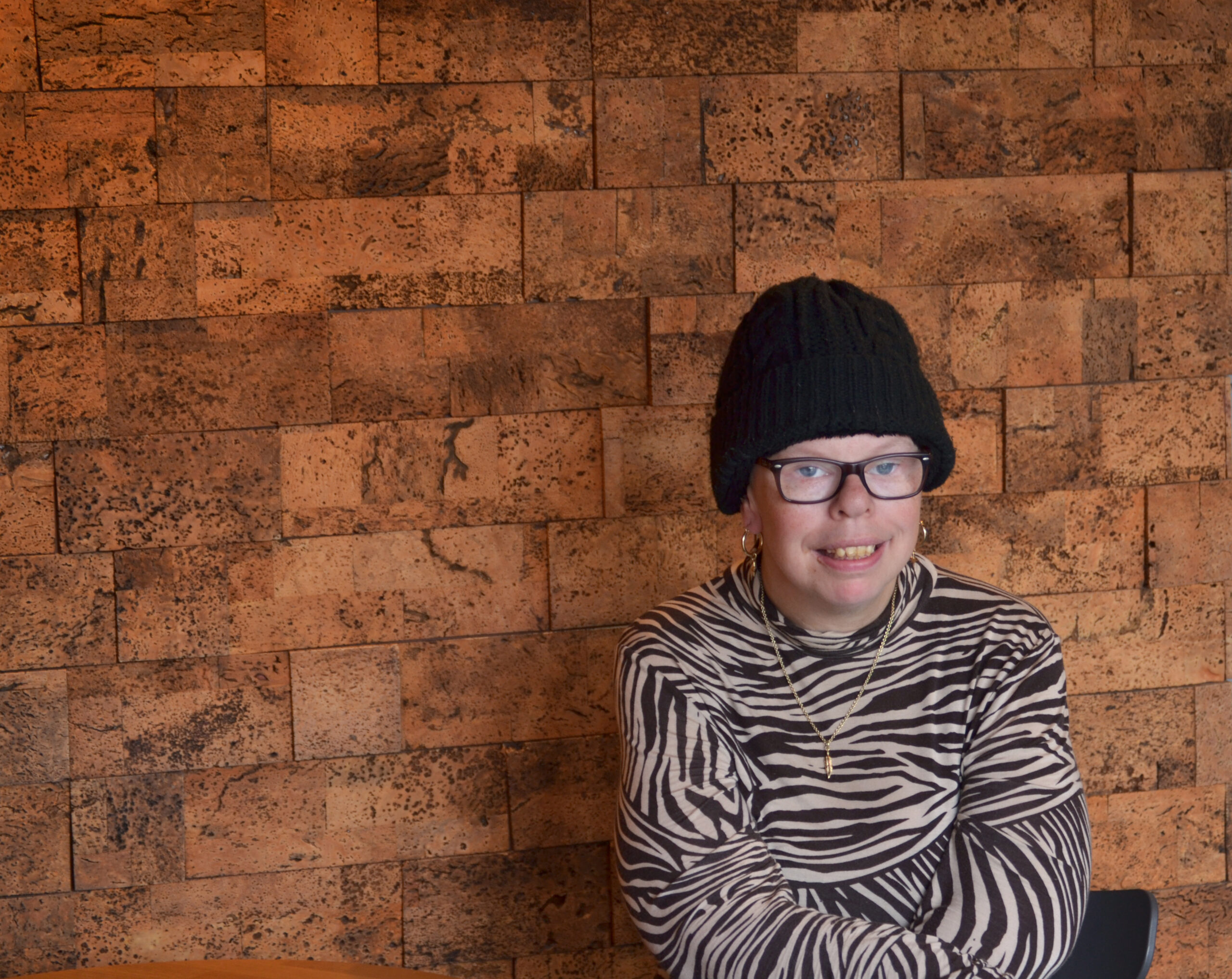
How can people advocate for disabled people in their everyday life?
“Just by mentioning to the press or other people that disabled people should be treated with love and respect. Tell them that there’s no need to be scared of disabled people. Our fight is also your fight. Abled people must be able to help us when we are in need of support. We should be fighting together not separately. I also vision a campaign were a disabled person voices her opinion on how society should change in like an advert. The advert could also shed a light on how disabled people want to be talked to and treated.
Do you feel like society praises a certain ‘norm’ over others?
“Yes, I do take notice of it and I must say that I’m mostly comfortable around people that society has also deemed “unnatural”. I mention this to my queer friends all the time; I tell them that I feel more comfortable around them. I like to go out of the norm, æ do you get me? I just find it so strange that some people are considered ‘normal’ and others aren’t. I don’t have privilege as a disabled woman; society basically deems me as something ‘unnatural’, what the matter with that! I’m sometimes ashamed about the fact that I don’t fit in with society’s standards. Society doesn’t accept me the way that I am. I once heard that; society doesn’t make room for disabled people, and I agree with that statement, but we have to make something happen to change that notion. You know, it’s a bit traumatising to hear something like this, it’s very easy to become afraid. Fortunately, for everyone, I am a tough character that isn’t afraid to protest these notions”.
Yes, we need people like you…
“…for people like you. Someone told me this one time and I’m in complete agreement with this saying. “
What’s next in store for you?
“I want to continue working on projects that make disabled people aware that they’re not alone. And I must add that sex education in schools is one of our most important tool to prevent violence. It’s very strange to me that some people think that sex education is to excessive; I don’t agree with that opinion. I also want to remind everyone that disabled people are all different, yet people often talk about us as we are all the same. I think it’s time that we re-evaluate our stance on disability matters and move forward”.
“It’s so important to have someone that’s willing to listen to you; someone that wants to understand. I’m so happy about us and this interview, nicely done!”
Do you support Vía?
Vía counts on your support. By subscribing to Vía you contribute to the future of a medium that specializes in, and puts emphasis on equality and diversity.
Vía, formerly known as Flóra, was founded 4 years ago for critical readers that want to dive underneath the superficial layer of social discussion and see it from an equality, inclusion, and diversity perspective.
From the beginning, Vía has covered urgent societal topics and published issues and articles that have shone a light on inequality, prejudice, and violence that exist in all layers of society.
We emphasize publishing stories from people with lived experiences of marginalization.
Every contribution, big and small, enables us to continually produce content aimed to educate and shine a light on hidden inequalities in society, and is essential for our continuing work.
Support Vía
Veganism: Backfire Effect
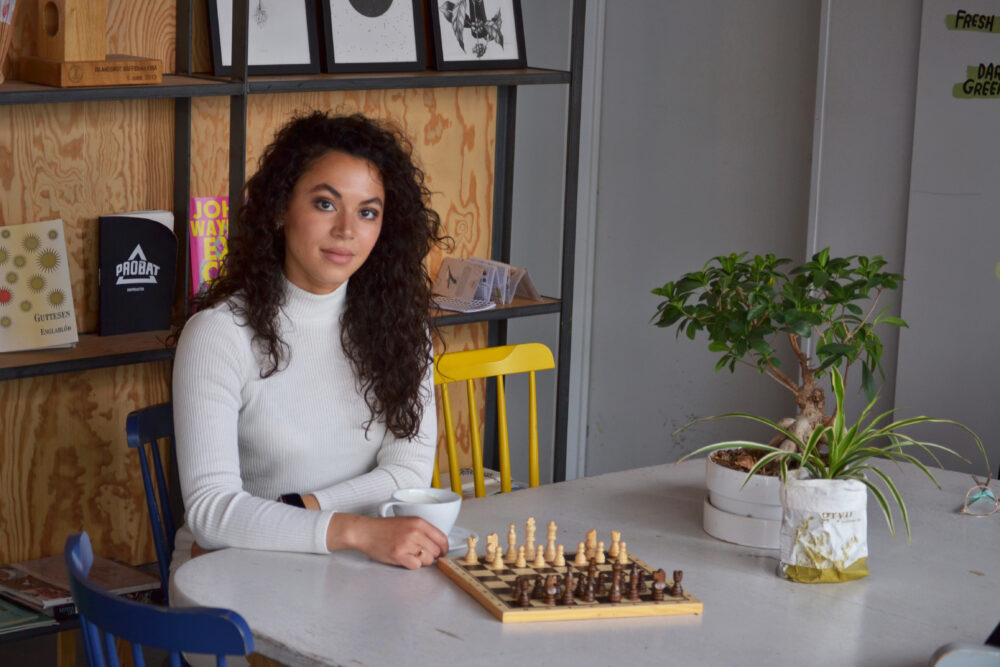
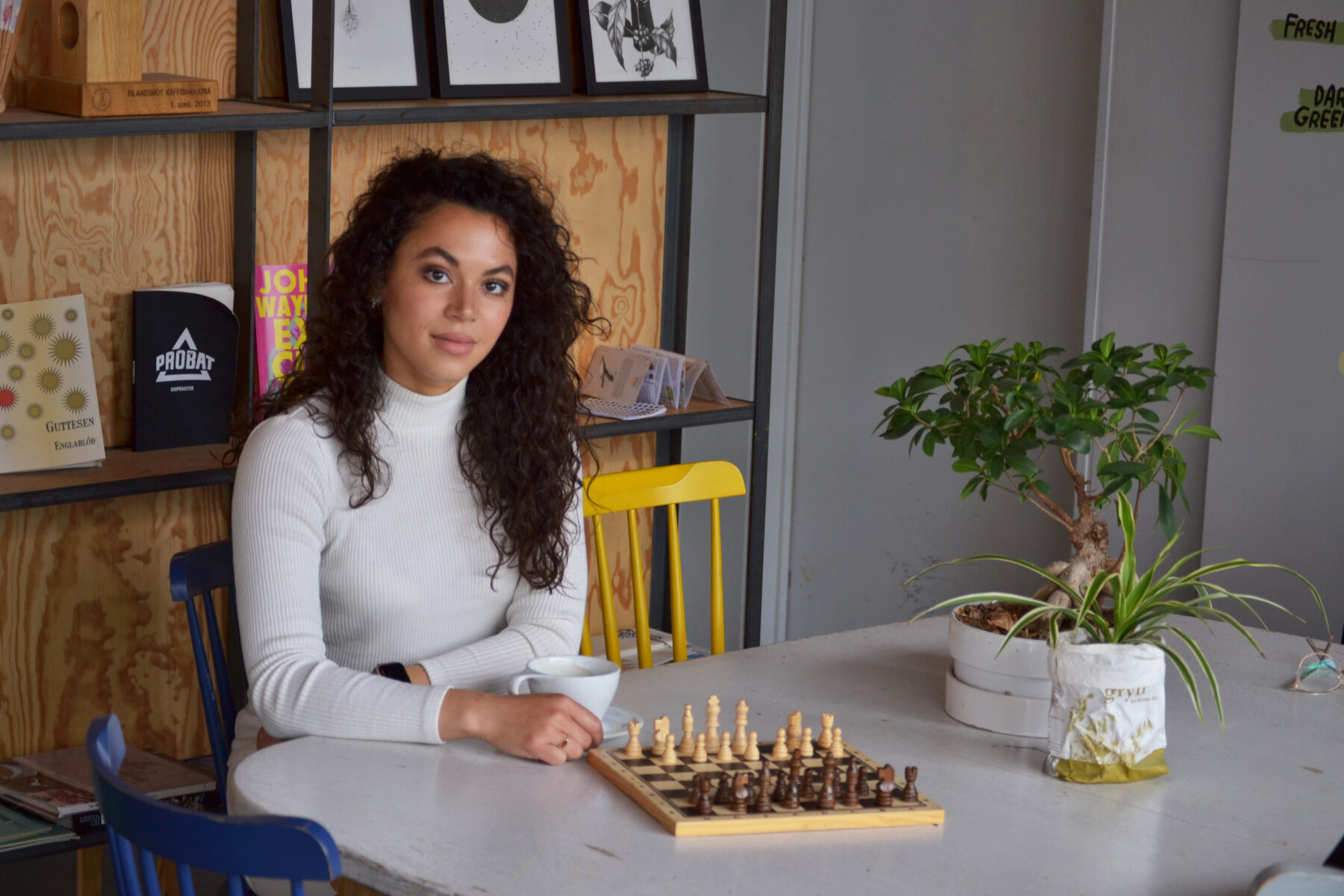
My Right to Exist
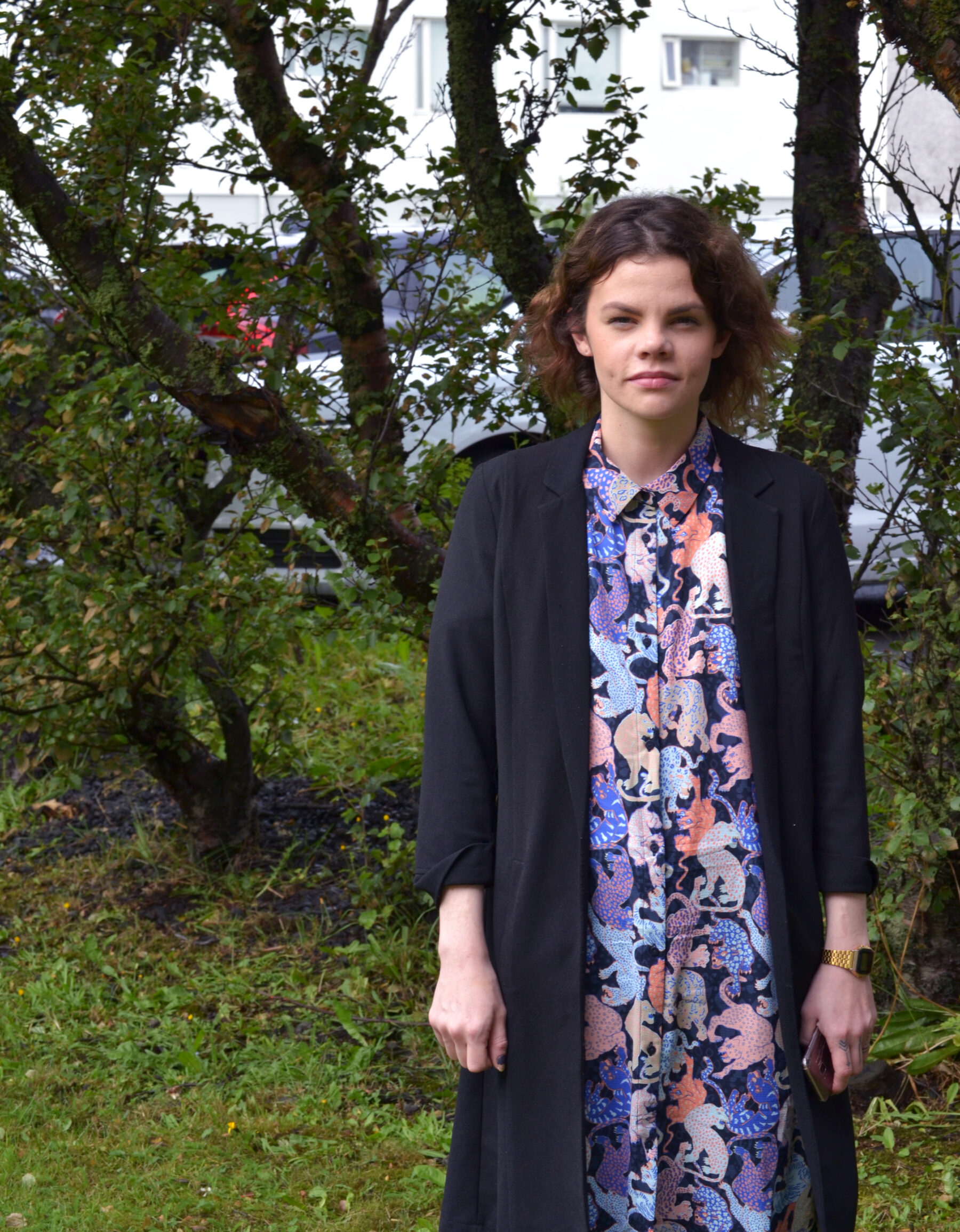

Forréttindapésar: Ekki biðja mig að vinna vinnuna þína


Perpetrators are Diverse
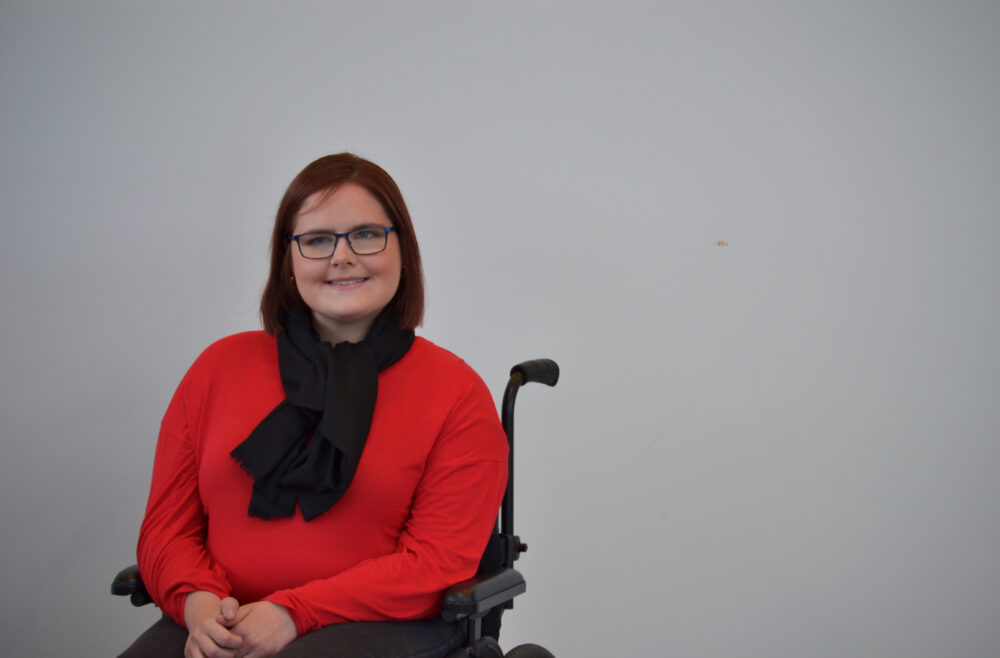
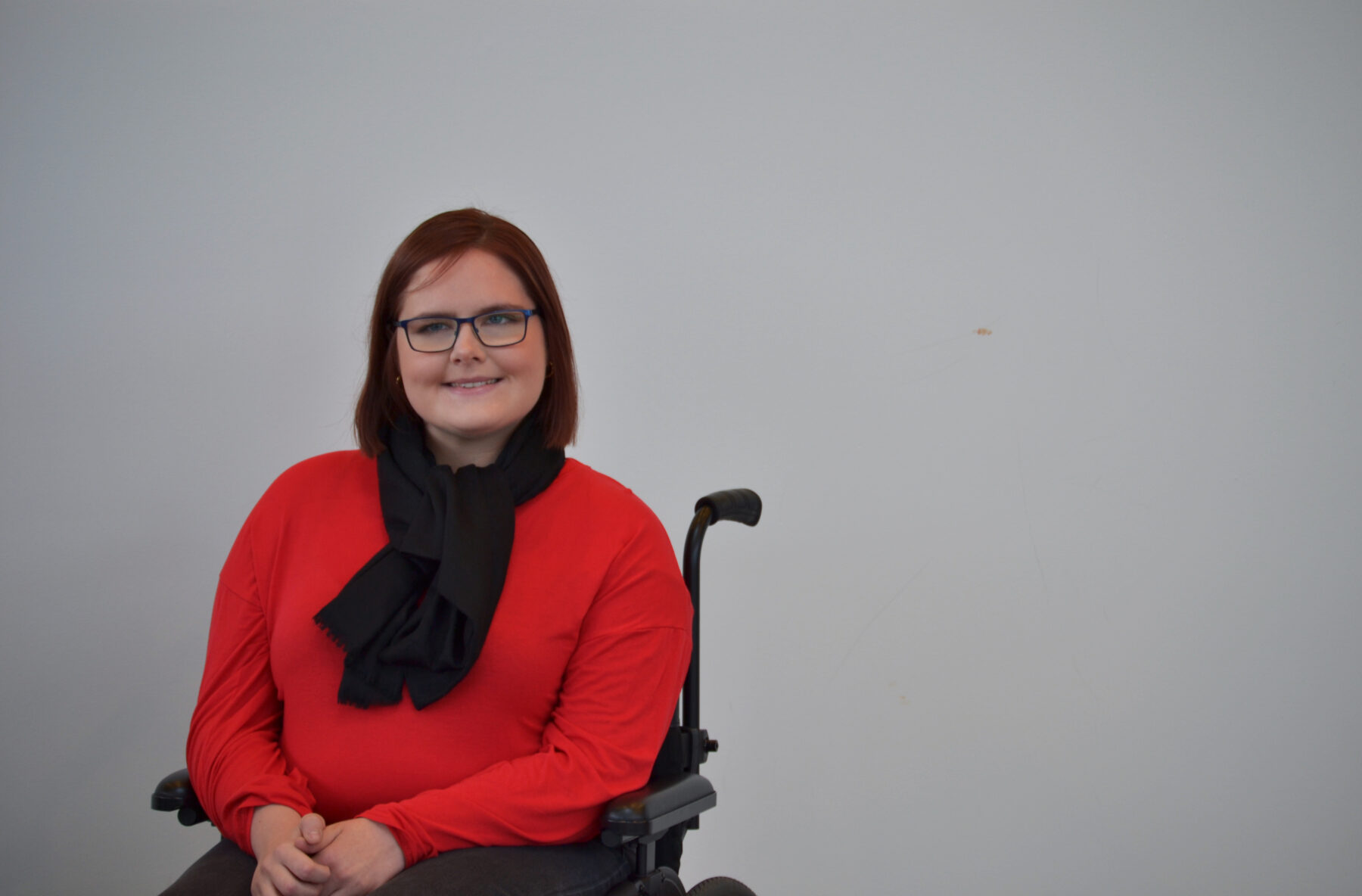
Read more about...